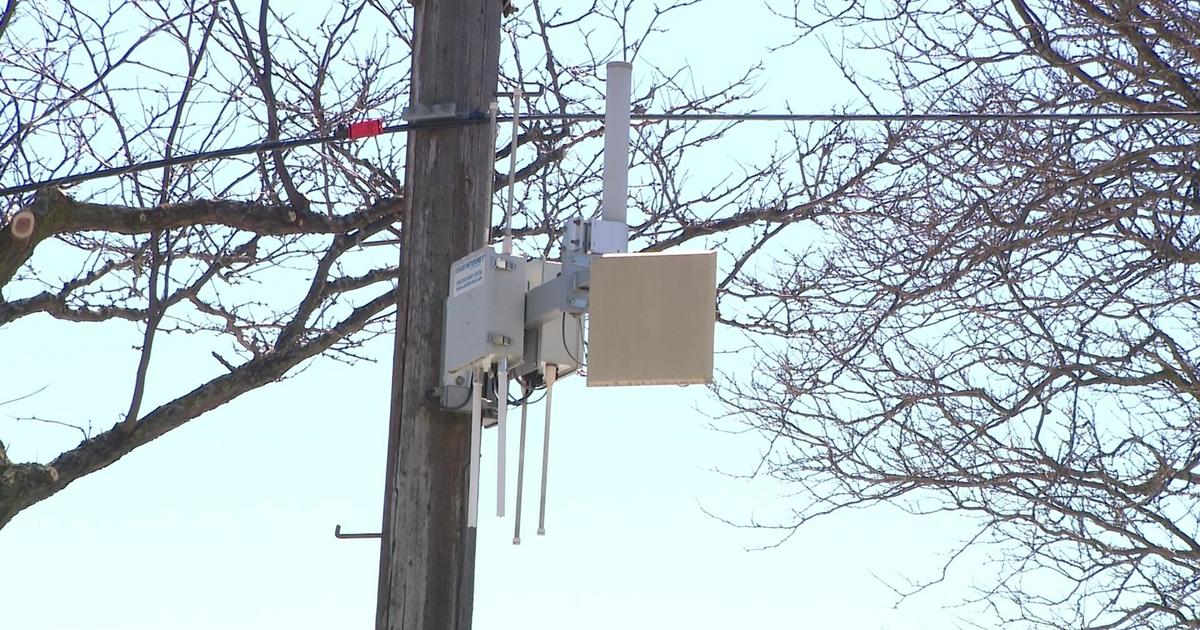"Mean And Angry" Tweet About Elizabeth Warren Sparks Online Debate About Women In Politics
By Wendy Widom
"Mean and angry Warren is not a good look," conservative columnist Jennifer Rubin tweeted during last week's presidential primary debate after Senator Elizabeth Warren gave a blistering critique of Mayor Michael Bloomberg's record. Rubin's tweet has ignited a fierce debate about women and anger, drawing close to 28,000 comments.
When the candidates face off again Tuesday evening for the Democratic presidential primary debate on CBS, will Warren take a softer approach?
Or does her campaign want the thunderbolt that a fiery confrontation could ignite?
"There is a tendency these days to think that women ought to claim their anger and strike back and that it's bad to be non-angry," said Dr. Martha Nussbaum, Ernst Freund Distinguished Service Professor of Law and Ethics at the University of Chicago.
Rather than strike-back anger, Nussbaum advocates an approach more in line with that espoused by leaders such as Nelson Mandela and Martin Luther King Jr.
"King always said that people came to his movement with the ordinary kind of anger but before they could be productive workers in his movement, the anger had to be, he used two words, 'purified' and the word 'crystallized'," she told CBS 2.
In contrast, Veronica Arreola, Program Director of Latin@s Gaining Access to Networks for Advancement in Science at the University of Illinois at Chicago, believes that anger is essential for social change.
"There are a lot of different ways to be angry and to use anger," she told CBS 2. "Anger fuels almost every change in this country, including civil rights."
Since the election of President Donald Trump in 2016, women have organized, marched and run for office with renewed force and energy. Anger, even the kind that Nussbaum describes as strike back or retributive, has spilled into the public debate once again due to what some believe is sluggish and slow progress.
"Women, particularly feminists, are reacting in anger and voicing anger at a system that has oppressed them for centuries," Arreola told CBS 2.
Was Warren out of line during the debate or was she simply asserting herself? On this point, both Nussbaum and Arreola agree."I think she was speaking strongly. And she wanted to go forward and correct issues about women," Nussbaum told CBS 2. "She stayed on track in the sense of always focusing on policy and not on personal belittling." Warren's anger, in Nussbaum's view, was not meant to harm Bloomberg.
"What we saw with Senator Warren was her voicing anger, frustration over the lack of movement in this country," Arreola told CBS 2. "Warren was not hurting Bloomberg. She was getting out the facts of why he should not be the candidate for the Democratic party."
Where Nussbaum and Arreola diverge, in the language of King, is how purified and crystallized anger should be in order to achieve social progress.
Nussbaum sees candidates bashing each other and wonders how Americans will work together to fix things. "I think it's a flaw that runs very deep in American politics," she said.
She cites Alexander Hamilton to convey the destructiveness of strike-back anger. "Hamilton actually wrote that he didn't want to fight that duel," with Aaron Burr, Nussbaum told CBS 2. Yet "he couldn't have a career in politics if he didn't fight."
For Arreola, however, anger serves as a spark.
"I think almost every movement that a woman starts begins with anger and frustration," she told CBS 2. "The high number of women that ran for office and won in the last cycle is directly a result of that collective anger."
In speaking with Nussbaum and Arreola, an idea emerges. Perhaps for progress to be made, society needs both. Sometimes we need anger to jolt us out of complacency and, at the same time, we need those gentle voices telling us it's safe to listen.
As a result of social media, Americans now find themselves perpetually seated at that metaphorical Thanksgiving table, forced to confront our differences. People feeling angry may seek to disrupt. Those advocating a non-angry approach may ask for cooler heads to prevail. What both approaches have in common is a desire to fix problems and create positive, lasting change.
In her book, "Bridging Troubled Waters: Conflict Resolution from the Heart," Michelle LeBaron writes that "expressing negative emotions in conflict is not a complete prescription" and one that risks damage to all parties. However, "unacknowledged negative emotions can freeze the process" and impede progress.
The challenge now is to navigate the messy mix of emotions that comes with trying to create a society in which diverse people and cultures coexist. How well or how poorly we bridge these troubled waters reflects who we are as a nation and will determine what we are becoming.



